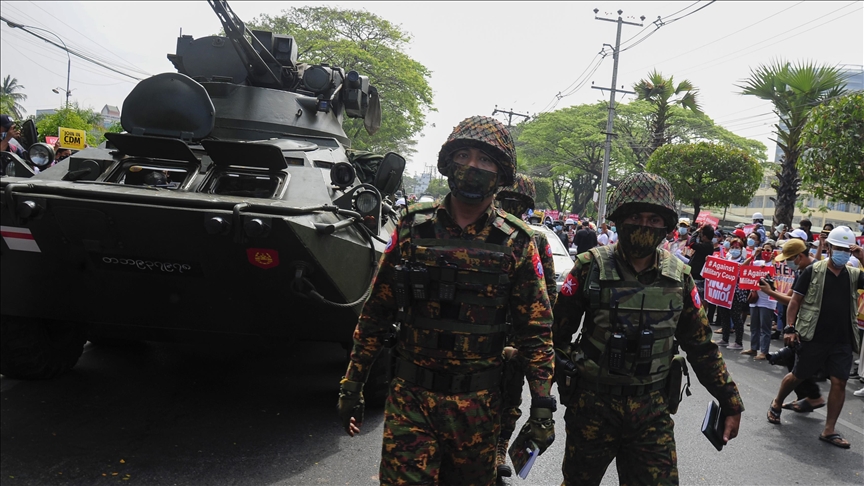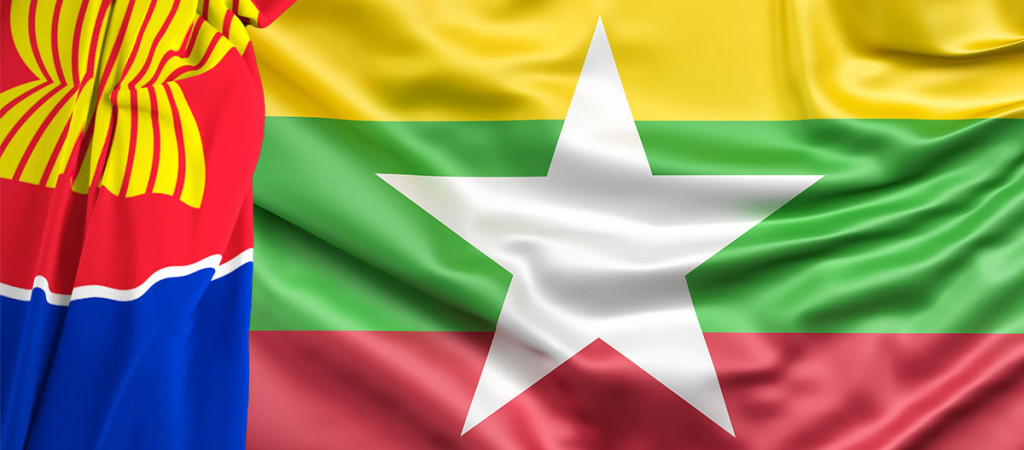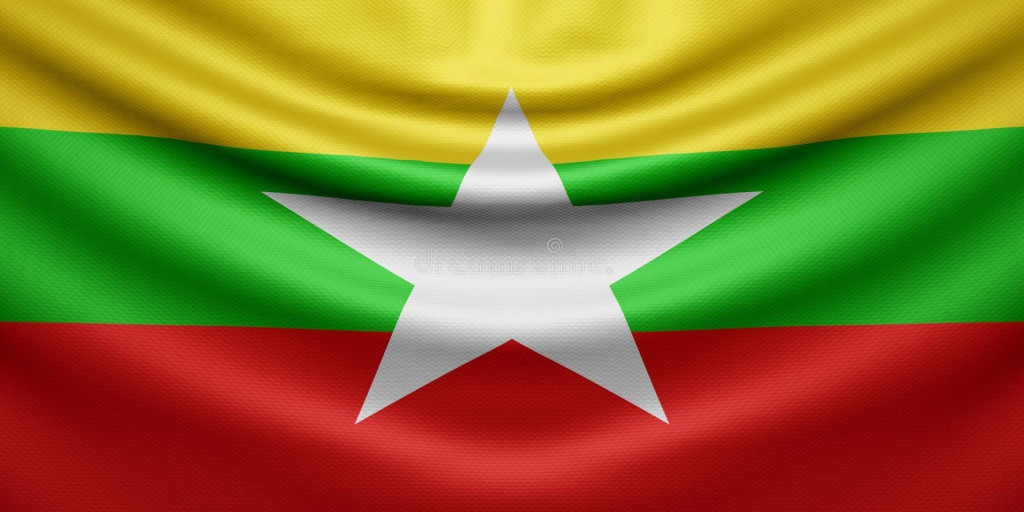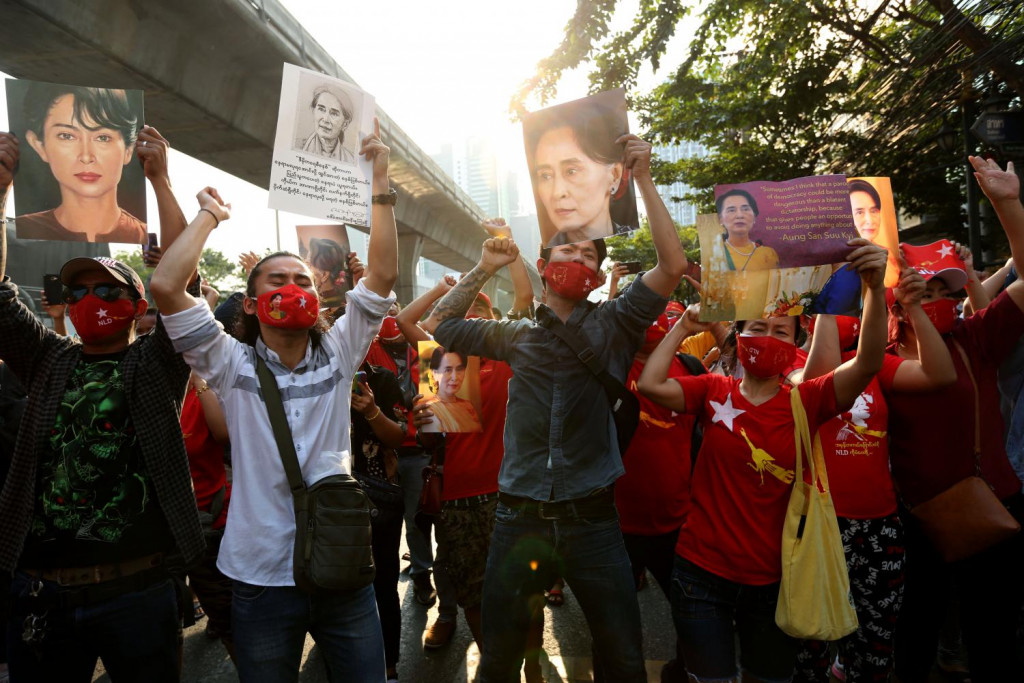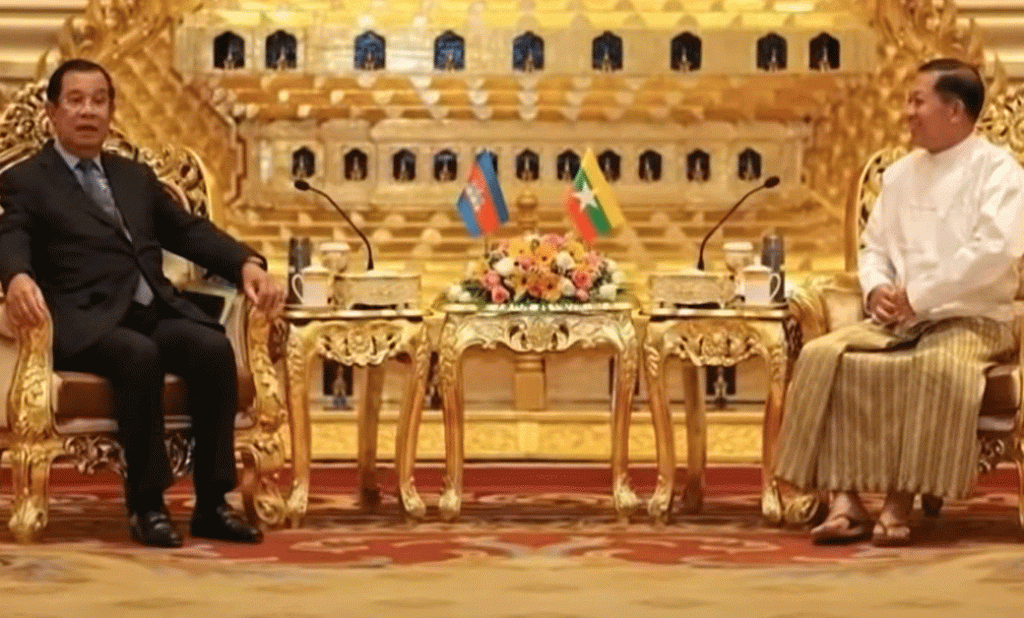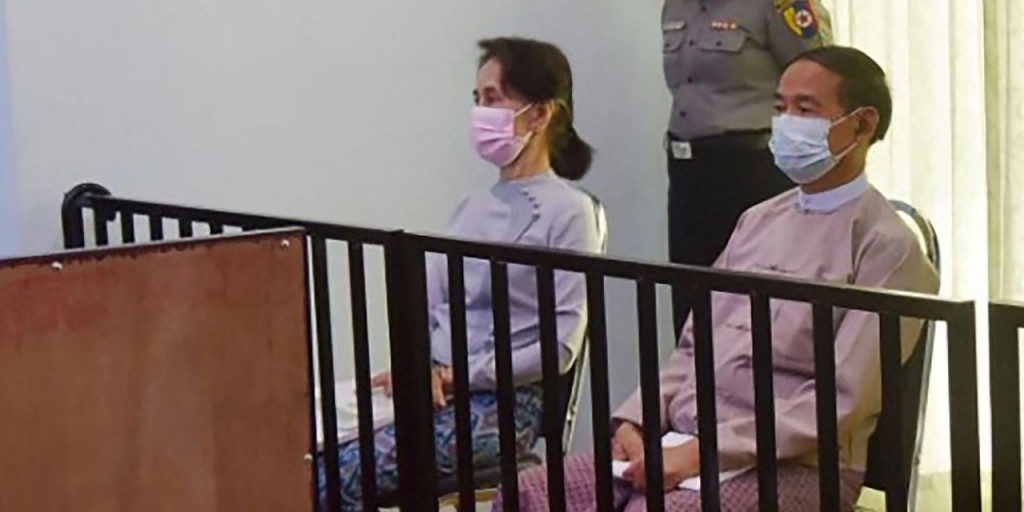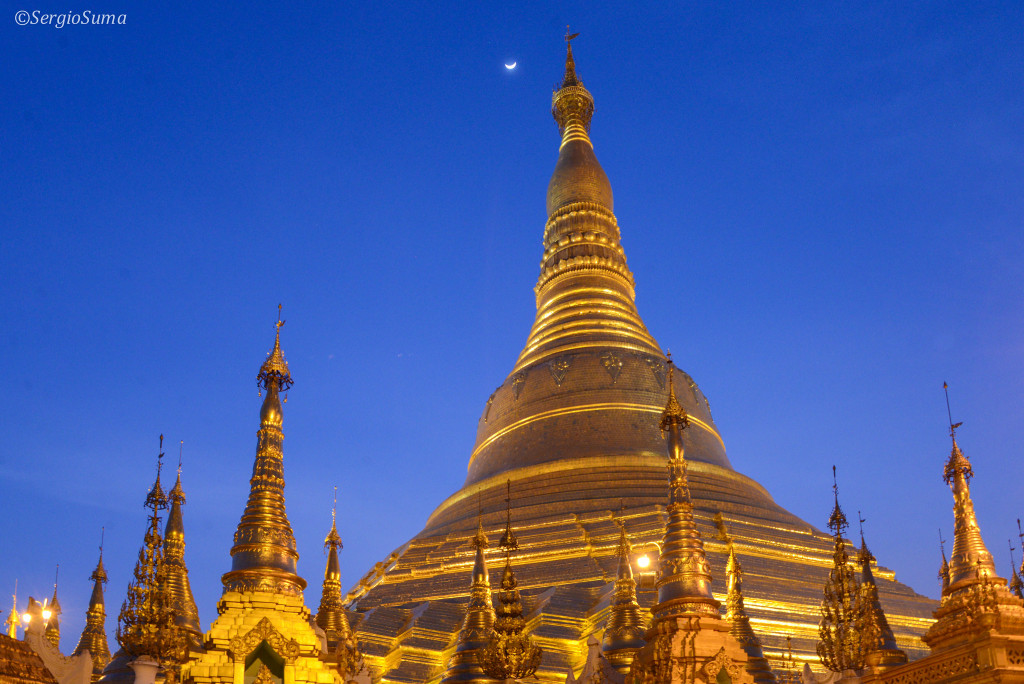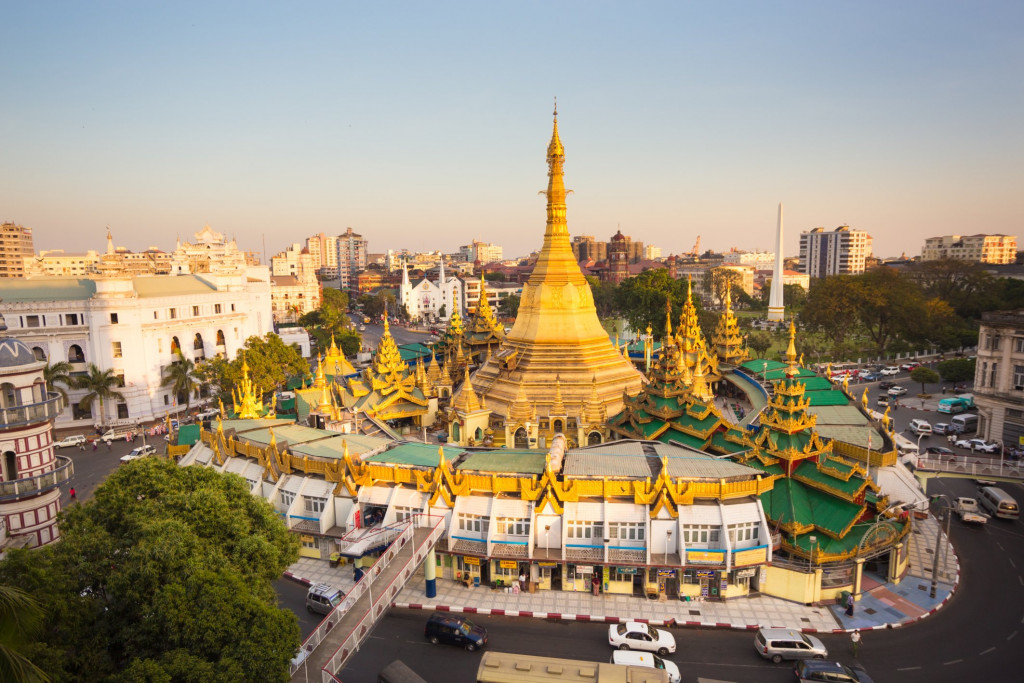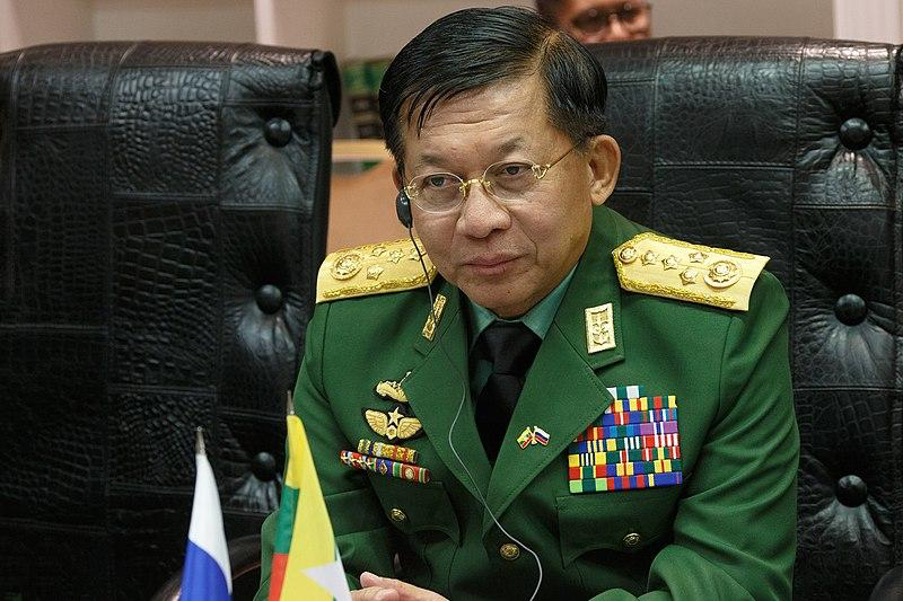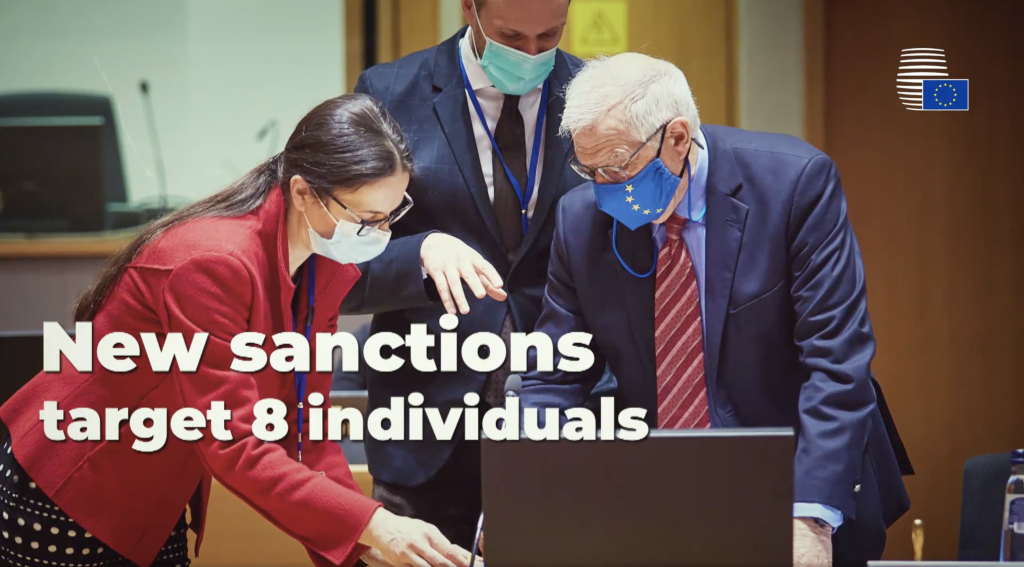For some, for the first time, the hypothesis of a victory for the civil resistance against the military junta does not seem so remote. For others, the Tatmadaw remains the best-armed force. Operation 1027 could reinvigorate opposition to the regime and find an unprecedented fit between the pieces of the Burmese puzzle in 2024
By Agnese Ranaldi
"I would say the revolution has reached the next level, rather than saying it has reached a turning point. What we have now is the result of our preparation, organization and construction over the last three years." The spokesman for Myanmar's national unity government, Nay Phone Latt, recently told the Associated Press. What he is referring to is "Operation 1027", one of the most powerful and extensive offensives that the anti-coup resistance has ever launched against the Tatmadaw, the army responsible for the February 1, 2021 coup in Myanmar. It has put the military junta headed by General Min Aung Hlaing in difficulty, and at the turn of the third anniversary of the start of the civil war it could reconfigure the power relations, changing the fate of the conflict.
The puzzle
Like a déja-vu, years after the last military coup, the results of the 2020 Burmese legislative elections won by Aung San Suu Kyi's National League for Democracy left the military dissatisfied, and they did what they do best: contract your muscles and take back your power. The political force close to the army, the Union of Solidarity and Development Party, had won only a few dozen seats. After seeing his request for a vote recount denied by the electoral commission, general and head of the armed forces Min Aung Hlaing opted for strong measures. With a campaign of raids and imprisonments, he arrested State Chancellor Aung San Suu Kyi and President Win Myint, along with other leading figures of the executive branch, returning the country to military dictatorship.
The coup regime, which represents the majority Bamar ethnic group (the largest among the approximately 135 officially recognized ethnic groups), has however armed its own enemy. As University of Sussex professor David Brenner explained on Twai, Myanmar was already the scene of the longest ongoing civil war between ethnonational rebel movements and the army of an ethnocratic and "disciplined" democracy - as the Constitution of 2008, which granted broad discretionary power to the military class. The coup d'état succeeded in recomposing the interests and identity claims of one of the most composite states in the world. With no small effort, the ethnic groups Chin, Kachin, Karen, Kayah, Mon, Rakhine, Shan, and others have variously taken up arms.
At first in a fragmented, uncoordinated way. As they had always done: divided into ethnic militias, each on their own territory, with their own methods of training and action. As Brenner points out, not all of them have positioned themselves clearly. The civil resistance movement, represented by the government of national unity, is supported by the Karen and Kachin militias. The Arakan army, explains the researcher, "seems to have opted for a strategic ambiguity", while the Wa State has been declared a neutral zone (and the respective United Wa State Army is also financially supported by China to protect the stability of the 'area).
In the last phase of the conflict, the military was losing ground and consensus. They sought to strengthen and replenish the Pyusawhti militia, named after a legendary warrior king, mentioned in some royal chronicles as having founded the first Bamar empire of Bagan in the 9th century. They promised the new recruits weapons, lands and money. But many members began to defect. Frontier Myanmar reports the experience of a young man identified with the fictitious name Ko Tun Min, who says he was forced to join one of the pro-junta militias in Sagaing, central Myanmar. The militia led by ultranationalist monk U Wasawa had threatened residents of his village that it would seize their homes if they refused to join up. On October 28, one day before the start of "Operation 1027", the leader summoned his men to say that there would be imminent clashes shortly thereafter. A week later, Ko Tun Min managed to escape. “I told my superior that I had to leave the base to buy cigarettes and I never returned,” he told Frontier Myanmar.
The piece
If the Tatmadaw loses ground, consensus, military strength, then "it is collapsing". “We are already receiving many deserters - Zin Mar Aung, spokesperson for the Burmese shadow government, told Nikkei Asia - and a large part of the military is ready to surrender”. According to Zin Mar Aung, the morale of the military junta and its soldiers is at an all-time low because they are losing their "logical foundation": the claim to act as guarantors of national cohesion and security.
The offensive from the northeast came on time, and inspired resistance across Myanmar. It began on November 27 in the Shan state, in the north-east of the country, but soon spread to the eastern Rakhine and Chin states. It was a coordinated attack against a dozen military outposts in northern Shan State, along the country's eastern border with China. The operation was organized by the Three Brotherhood Alliance, composed of the Myanmar National Democratic Alliance Army, the Ta'Ang National Liberation Army and the Arakan Army. According to Al Jazeera, it is a group that is part of a coalition of seven ethnic armed organizations that maintain close ties with China and have bases or territories near the border with the country.
"The fact that the Three Brotherhood Alliance is vigorously participating in the fight against the junta has greatly affected the balance of power. The strength of the revolution is increasing," said Tayzar San, an activist who led the country's first demonstration against the coup d'état. As a aid worker identified by the name Victor tells Al Jazeera, until then the Alliance had kept its distance from the crisis, while its members fought individually, supporting the resistance of various armed groups. According to him it was a matter of time before they went to war. “This is the beginning of the end game,” he said.
The fit Understanding Myanmar's present is complex. As Carla Vitantonio, who worked for years in the country as an aid worker, told in Myanmar Swing, the more one delves into the history of this territory, the more the ethnic, social and political panorama becomes denser. It becomes difficult to come up with a coherent narrative. Even recomposing the matrix of relationships that animated the civil war of the last two years, although it is recent history, is an ambitious work. For some, like Victor, for the first time the hypothesis of a victory of the civil resistance against the military junta does not seem so remote. On December 5, General Min Aung Hlaing called on armed ethnic groups to "politically" resolve their problems with the coup plotters in power. But as Bertil Lintner points out in the Irrawaddy, “while Myanmar's army may be spread thin on many fronts and incapable of defeating the resistance, it remains the country's most effective and best-armed fighting force.” What is certain, however, is that Operation 1027 reinvigorated civil resistance to the military junta. Who knows, in 2024 he might find an unprecedented fit among the infinite pieces of the Burmese puzzle.

